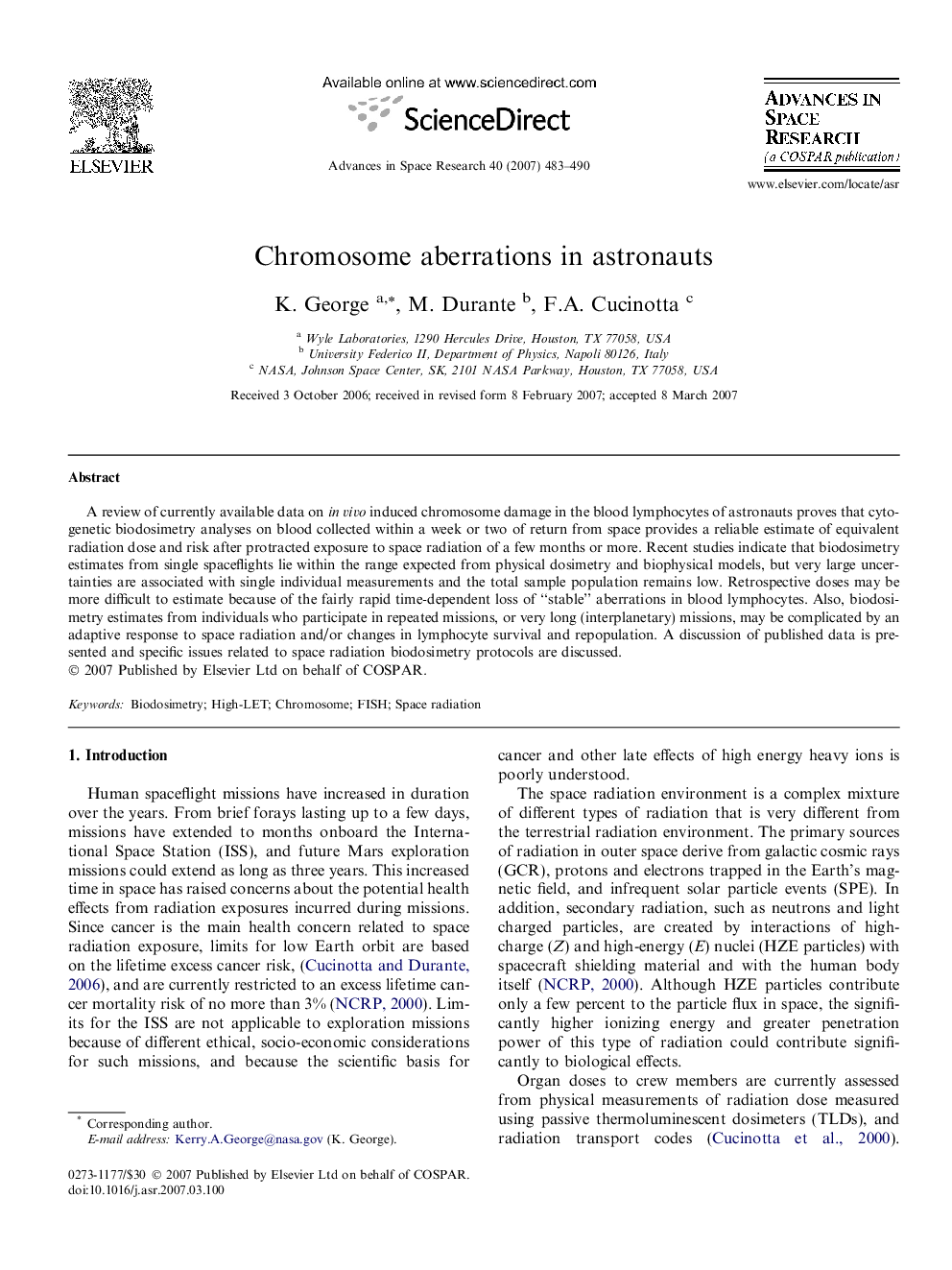| Article ID | Journal | Published Year | Pages | File Type |
|---|---|---|---|---|
| 1767122 | Advances in Space Research | 2007 | 8 Pages |
A review of currently available data on in vivo induced chromosome damage in the blood lymphocytes of astronauts proves that cytogenetic biodosimetry analyses on blood collected within a week or two of return from space provides a reliable estimate of equivalent radiation dose and risk after protracted exposure to space radiation of a few months or more. Recent studies indicate that biodosimetry estimates from single spaceflights lie within the range expected from physical dosimetry and biophysical models, but very large uncertainties are associated with single individual measurements and the total sample population remains low. Retrospective doses may be more difficult to estimate because of the fairly rapid time-dependent loss of “stable” aberrations in blood lymphocytes. Also, biodosimetry estimates from individuals who participate in repeated missions, or very long (interplanetary) missions, may be complicated by an adaptive response to space radiation and/or changes in lymphocyte survival and repopulation. A discussion of published data is presented and specific issues related to space radiation biodosimetry protocols are discussed.
